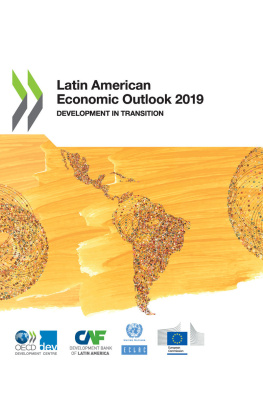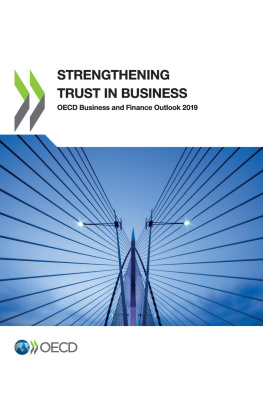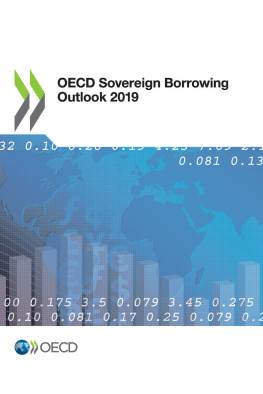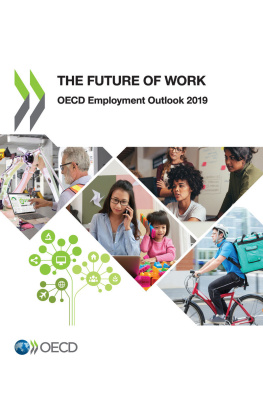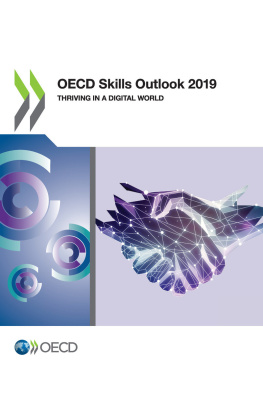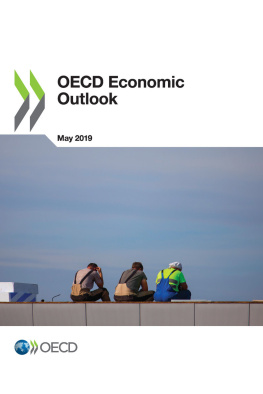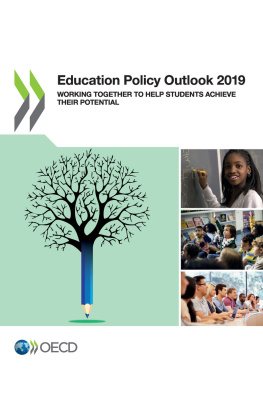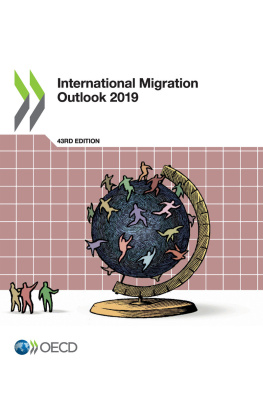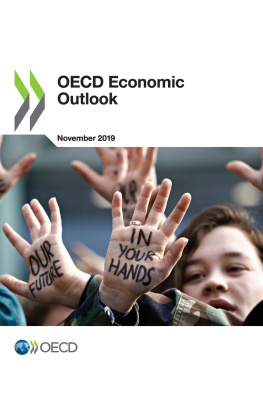OECD - Latin American Economic Outlook 2019
Here you can read online OECD - Latin American Economic Outlook 2019 full text of the book (entire story) in english for free. Download pdf and epub, get meaning, cover and reviews about this ebook. year: 2019, publisher: OECD Publishing, genre: Politics. Description of the work, (preface) as well as reviews are available. Best literature library LitArk.com created for fans of good reading and offers a wide selection of genres:
Romance novel
Science fiction
Adventure
Detective
Science
History
Home and family
Prose
Art
Politics
Computer
Non-fiction
Religion
Business
Children
Humor
Choose a favorite category and find really read worthwhile books. Enjoy immersion in the world of imagination, feel the emotions of the characters or learn something new for yourself, make an fascinating discovery.
- Book:Latin American Economic Outlook 2019
- Author:
- Publisher:OECD Publishing
- Genre:
- Year:2019
- Rating:5 / 5
- Favourites:Add to favourites
- Your mark:
- 100
- 1
- 2
- 3
- 4
- 5
Latin American Economic Outlook 2019: summary, description and annotation
We offer to read an annotation, description, summary or preface (depends on what the author of the book "Latin American Economic Outlook 2019" wrote himself). If you haven't found the necessary information about the book — write in the comments, we will try to find it.
OECD: author's other books
Who wrote Latin American Economic Outlook 2019? Find out the surname, the name of the author of the book and a list of all author's works by series.
Latin American Economic Outlook 2019 — read online for free the complete book (whole text) full work
Below is the text of the book, divided by pages. System saving the place of the last page read, allows you to conveniently read the book "Latin American Economic Outlook 2019" online for free, without having to search again every time where you left off. Put a bookmark, and you can go to the page where you finished reading at any time.
Font size:
Interval:
Bookmark:
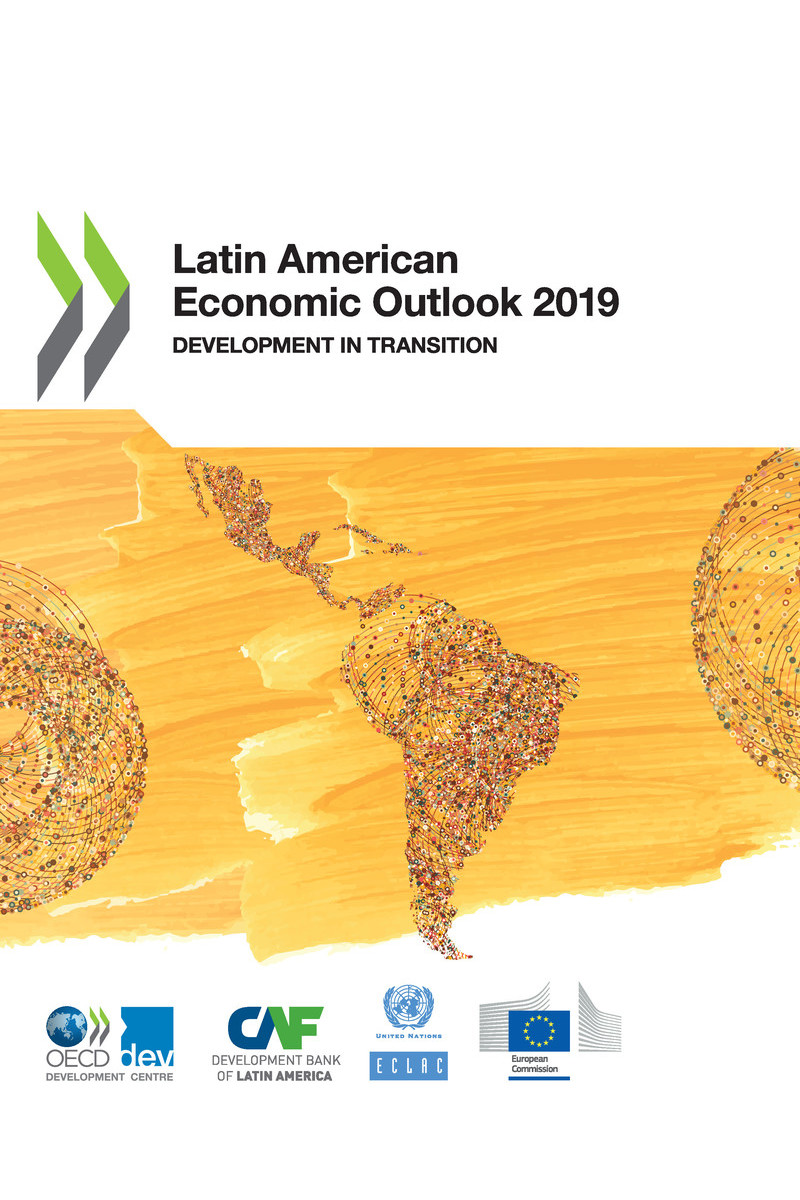
OECD et al. (2019), Latin American Economic Outlook 2019: Development in Transition , OECD Publishing, Paris, https://doi.org/10.1787/g2g9ff18-en .
The Latin American Economic Outlook (LEO) analyses issues related to sustainable and inclusive development in Latin America and the Caribbean (LAC). Since the LEOs launch in November 2007, the annual report has compared LACs performance with that of other regions, analysed main development challenges and put forward policy recommendations, experiences and good practices.
The LEO benefits from the expertise and inputs of co-authors. Since 2011, the LEO has been published in conjunction with the United Nations Economic Commission for Latin America and the Caribbean (ECLAC). In 2013, the CAF Development Bank of Latin America joined the team of authors. Since LEO 2018, the European Union joined as one of its main partners.
This 12th LEO, Development in Transition , presents a fresh analytical approach in the region. Latin America and the Caribbean has seen remarkable socio-economic progress since the beginning of the century. The macroeconomic situation of individual countries has strengthened, living standards have improved, and poverty and inequality have declined. Yet large structural vulnerabilities remain and new ones have emerged, many of which are linked to the transition to higher income and development levels. This new approach offers a comprehensive analytical approach that assesses the increasingly complex multi-dimensional challenges facing the region: four development traps relating to productivity, social vulnerability, institutions and the environment. It outlines local opportunities for responding to those traps and seeks ways of improving global public goods to reinforce national agendas, all in the context of the United Nations 2030 Agenda. LEO 2019 calls for improving domestic capacities and adopting a new vision of international co-operation as a facilitator to support those efforts.
Partners of this report are the Economic Commission for Latin America and the Caribbean (ECLAC), CAF - Development bank of Latin America, the European Union (EU) and the Development Centre of the Organisation for Economic Co-operation and Development (OECD). This report is supported under the Pillar 1 of the European Union Regional Facility for Development in Transition for Latin America and the Caribbean (LAC), an EU-led initiative, jointly implemented with the OECD and its Development Centre and the ECLAC.
The report was led and managed by Sebastin Nieto-Parra, Head of Latin America and the Caribbean Unit at the OECD Development Centre, with the support of Paula Cerutti and Ren Orozco, Economists at the Latin America and the Caribbean Unit of the OECD Development Centre, under the guidance of Mario Pezzini, Director of the OECD Development Centre, and Federico Bonaglia, Deputy Director of the OECD Development Centre. ECLACs contribution was led by Sebastin Rovira, Economic Affairs Officer, under the guidance of Mario Cimoli, Deputy Executive Secretary of the ECLAC. The contribution from CAF-Development Bank of Latin America was led by Adriana Arreaza, Director of Macroeconomic Studies.
The production of this report was co-ordinated by Paula Cerutti, Economist at the Latin America and Caribbean Unit of the OECD Development Centre. The report benefited from the research, drafting and fruitful collaboration between various authors across these organisations, including: Adriana Caicedo (OECD), Cristina Cabutto (OECD), Rita Da Costa (OECD), Linda Smiroldo Herda (OECD), Lyse Marques (OECD), Ren Orozco (OECD), Nunzia Saporito (ECLAC), Bruno Pantaleao (OECD), Daniel Titelman (ECLAC), Manuel Toledo (CAF) and Juan Vazquez Zamora (OECD). Agustina Vierheller and Julia Peppino (OECD) provided invaluable administrative support throughout the elaboration of the report.
A group of experts and colleagues have been particularly active and supportive along the production process, providing views, inputs, comments and strategic orientation to the report. We would like to highlight the support of Jos Antonio Alonso (Universidad Complutense de Madrid), Lucio Castro (Consultant), Jonathan Glennie (CEPEI and the Joep Lange Institute), Stephany Griffith-Jones (Columbia University), Natali Maldonado (Universidad del Rosario), Andrs Mario (Universidad del Rosario), Angel Melguizo (Former Head of Latin America and the Caribbean Unit at the OECD Development Centre), Marco Mira DErcole (OECD), Jose Antonio Ocampo (Columbia University), Pelayo Roces Fernndez (EU), Claudio Salinas (EU) and Katherine Scrivens (OECD).
The content of the report was enriched by constructive feedback received during the LEO 2019 Experts Meeting that took place in Paris on 7 September 2018, the Development in Transition seminar in Santiago on 2 and 3 October 2018, and the LEO 2019 Consultation Meeting in Paris on 11 December 2018. We are particularly grateful to the experts who joined us: Martn Abeles (ECLAC), Lais Abramo (ECLAC), Gloria Alonso (DNP, Colombia), Mnica Aspe (former Chair of the Governing Board of the OECD Development Centre), Juan Carlos Berganza (Banco de Espaa), Luis Brtola (Universidad de la Repblica), Laurence Boone (OECD), Ana Ciuti (Ministry of Foreign Affairs and Worship, Argentina), Guillermo Cruces (Universidad Nacional de La Plata), Mara del Pilar Garrido Gonzalo (Ministry of Planning, Costa Rica), Carlos de Miguel (ECLAC), Antonio de Paula Oliveira (CGEE, Brazil), Martine Durand (OECD), Ariel Emirian (Socit Gnrale), Joao Carlos Ferraz (Universidade Federal do Rio de Janeiro), Luis Foncerrada (Universidad Nacional Autnoma), Martn Francos (Ministry of Economy, Planning and Development, Dominican Republic), Ricardo French-Davis (Universidad de Chile), Guillermo Gonzlez (Ministry of the Environment, Chile), Camila Gramkow (Tyndall Centre for Climate Change Research), Nicolas Grosman (McKinsey Global Institute), Gonzalo Hernndez Licona (CONEVAL, Mexico), Stephanie Araya Jimnez (Ministry of Planning, Costa Rica), Jakob Kapeller (University of Linz), Jorge Katz (Universidad de Chile), David Kupfer (Universidade Federal do Rio de Janeiro), Claudio Maggi (Universidad de Concepcin), Alejandro Mentaberry (Ministry of Science, Technology and Productive Innovation, Argentina), Nohelia Milln (INMUJERES [National Institute for Women], Uruguay), Jorge Moreira Da Silva (OECD), Michelle Muschett (Ministry of Social Development, Panama), Enrique OFarrill (AGCID, Chile), Juan Daniel Oviedo (DANE, Colombia), Luis Henrique Paiva (Ministry of Social Development, Brazil), Grace Perez-Navarro (OECD), Rafael Puyana (DNP, Colombia), Luis Rappoport (Ministry of the Interior, Argentina), Auke Rijpma (Utrecht University), Dave Seerattan (University of West Indies), Nancy Magaly Silva Sebastian (APCI, Peru), Elkin Velzquez (UN Habitat), Juan Yermo (OECD) and Stella Zervoudaki (Delegation of the EU to Chile).
Font size:
Interval:
Bookmark:
Similar books «Latin American Economic Outlook 2019»
Look at similar books to Latin American Economic Outlook 2019. We have selected literature similar in name and meaning in the hope of providing readers with more options to find new, interesting, not yet read works.
Discussion, reviews of the book Latin American Economic Outlook 2019 and just readers' own opinions. Leave your comments, write what you think about the work, its meaning or the main characters. Specify what exactly you liked and what you didn't like, and why you think so.

